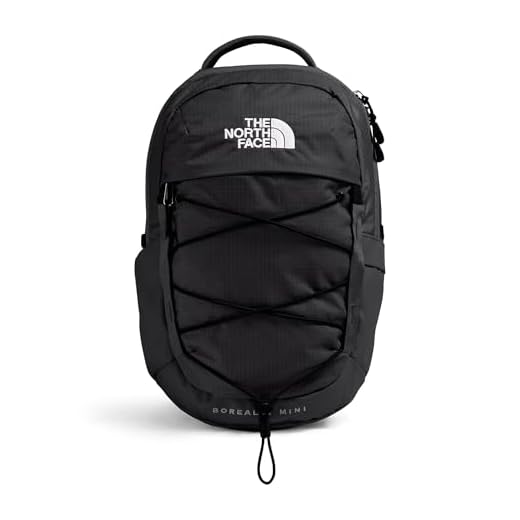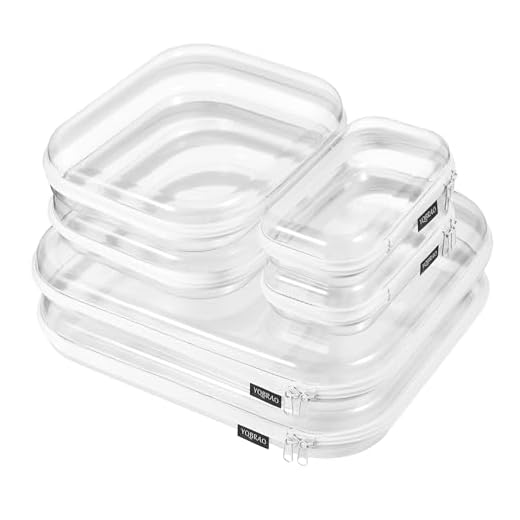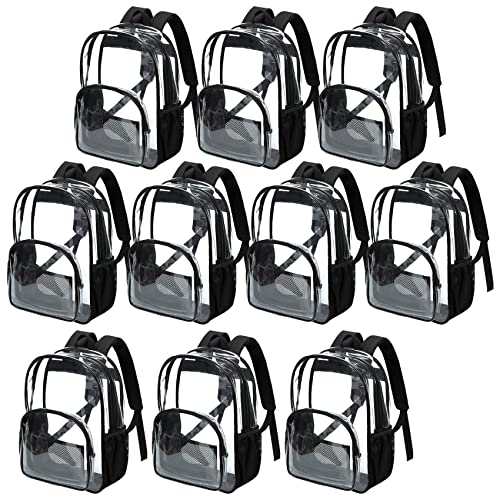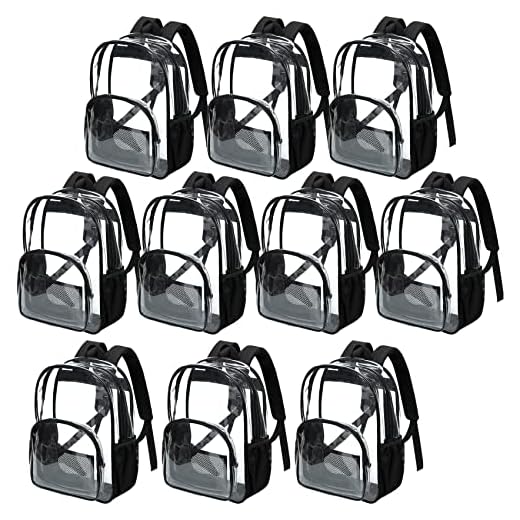



Recommendation: Use a compact clear daypack or a small sling; large rucksacks are often denied entry or required to go to paid bag-check. Limit contents to ticket, government ID, prescription medicines (with documentation), phone, wallet, one charger, and a single small sealed snack or empty refillable bottle.
Typical size guidance: Organizers commonly set maximum dimensions for opaque packs roughly 35 x 35 x 15 cm (14 x 14 x 6 in). Some venues accept any size only if the bag is transparent; others ban all non-clear packs above the stated limit. Verify the exact measurement on the event’s official page before packing.
Items frequently prohibited: real firearms, functional knives, sharpened edges, explosives, pyrotechnics, aerosol canisters, incendiary materials, large tripods, drones, professional audio/video setups without press credentials, and unapproved chemical agents. Prop weapons usually require peace-bonding (visible tape or zip-tie) and must not fire projectiles or contain metal locking mechanisms.
Security processes and what to expect: Expect thorough bag searches, metal-detector screening and random patrols. Place electronics and pockets items where staff can access them quickly. If an item triggers concern, staff will ask to inspect or to hold it at bag-check; refusal to allow inspection can result in denied entry.
Practical tactics for a smoother day: use venue coat-check or nearby luggage storage for bulky items; put meds and valuables in a clearly labeled inner pocket; carry physical ticket copies plus digital; put chargers and small electronics in an easy-access pouch to speed inspections; use a portable battery under 100 Wh for fewer transport questions. If your costume includes large props, consult the event’s prop policy and upload photos to the organizer’s submission form when required.
Always open the event’s official rules page and the venue’s FAQ before departure, and email guest services for any ambiguous items. Arrive early if you plan to drop a larger pack at coat-check – lines for that service form quickly at peak hours.
Allowed bags and security rules for the fan convention
Answer: Small clear bags up to 12″ x 6″ x 12″ (30 x 15 x 30 cm) are generally accepted; larger carry items may be denied entry or require inspection and temporary hold.
Prohibited items: Real firearms, live blades, edged tools, explosive or pressurized canisters, large glass containers, medical oxygen without prior approval, professional camera rigs and monopods over venue limits, oversized coolers, and open flame devices.
Prop policies vary by organizer: items resembling weapons often must be rendered inert, have visible safety markings, or be peace-taped and declared at the entrance. For any full-size rigid props or electronics that look like weapons, contact event staff ahead and arrive early for mandatory screening.
Packing tips: use a clear tote or a compact daypack under the stated dimensions; keep badge, government ID, cash/card, phone, battery pack and small first-aid/repair kit in external pockets for quick access. Distribute weight low and close to the body to avoid fatigue during long lines and exhibit halls.
Logistics: leave suitcases and nonessential gear at your hotel or a paid storage/locker service near the venue; reserve locker space before the event. Expect random bag checks at security checkpoints and a no-refund policy if items are confiscated for safety reasons. Verify the event’s official bag and prop policy on the organizer’s website before departure.
Which fan expos allow bags and where to check official bag policies
Use a clear or small soft-sided bag that meets the host’s stated size limit; oversized rucksacks, hard cases and rolling luggage are often refused or redirected to on-site storage or vehicle return.
Policies at major shows – quick snapshot
SDCC (San Diego): small, soft or clear bags generally accepted if within dimensions posted on the event’s attendee rules; large bags commonly prohibited and subject to search. NYCC (New York): ReedPop enforces size limits and a strict prohibited-items list; clear bags recommended for faster entry. ECCC (Emerald City): most attendees are allowed compact bags only; venue security may require bag checks for any item that obscures contents. Fan Expo Toronto and MCM London: both host operators publish explicit “bag rules” and often require clear bags or specified maximum measurements during high-attendance days. PAX West and Phoenix Fan Fusion: gaming- and multi-genre shows frequently permit small bags and lanyard pouches but ban bulky luggage and weapon replicas; prop storage options are detailed on their pages.
Where to verify the official rules
Check the event’s official website pages labeled Attendee FAQ, Tickets/Terms, or Safety & Security for the most current dimensions, prohibited items and search procedures. Also consult the host venue’s security policy (convention centre or arena site), the organizer’s social channels for last-minute updates, and your ticket vendor emails for entry requirements and locker information. For gear choices that fit typical limits, consider a compact umbrella like this best womens compact umbrella, and review food-storage rules before packing snacks (example reference: are sainsbury freezer bags microwave safe).
Permitted bag dimensions and clear-bag policies for entry
Recommendation: Use one transparent tote made of PVC, vinyl or PET no larger than 12″ x 6″ x 12″ (30 x 15 x 30 cm); if a transparent option is not available, carry a small personal item no bigger than 6″ x 9″ (15 x 23 cm). Framed packs, rolling luggage, large totes and hard-sided cases are routinely refused at security.
Allowed materials and visibility rules
Only fully transparent materials (PVC, vinyl, PET) guarantee quick screening. Mesh bags are accepted only when completely see-through and within the size limit. Zippers and internal pockets are permitted provided contents remain visible without opening the bag. Opaque panels, heavy insulation or lined compartments that hide items lead to additional searches or denial of entry.
Screening process and packing guidance
Security staff will measure and inspect at entry; oversize items may be diverted to a paid bag check or left outside. Remove costume props, sealed food containers and large batteries from interior compartments to avoid delays. Replace large or framed packs with a compliant clear tote to speed up admission.
| Item | Allowed? | Maximum dimension | Notes |
|---|---|---|---|
| Transparent tote (PVC/vinyl/PET) | Yes | 12″ x 6″ x 12″ (30 x 15 x 30 cm) | Must be fully see-through; pockets visible |
| Small purse / clutch | Yes | 6″ x 9″ (15 x 23 cm) | Hand-carried item; clear preferred |
| Mesh bag | Conditional | Match clear-tote dimensions | Acceptance varies; contents must be visible |
| Framed or hard-sided pack / rolling luggage | No | N/A | Will be refused or sent to external bag check |
If an item’s status is unclear for the specific event venue, swap it for an inexpensive clear tote or leave it in a vehicle to avoid admission delays.
Prohibited items commonly found in bags that will be denied at security
Do not pack real firearms, ammunition, or realistic weapon replicas–these are automatic confiscation items and lead to ejection and possible legal action.
Bladed and sharp objects
Any real knife, box cutter, razor, multitool with exposed blade, or sharp edged prop is typically forbidden. Foam, rubber or clearly non-metal cosplay blades are commonly allowed; metal or sharpened edges are not. If carrying a prop sword or staff, disassemble, wrap the blade in opaque material, and have documentation that it is a non-lethal prop; however security may still refuse entry.
Flammables, aerosols, liquids, and batteries
Aerosol sprays (pepper spray/OC included), lighter fluid, butane, matches, fireworks and fuel cartridges are banned. Large liquid containers and unsealed liquids will be rejected–use sealed travel-size bottles only and pack them in clear pouches if permitted by the organizer. Loose lithium cells (spare 18650, 21700, etc.) should be placed in original packaging or terminal-taped and stored separately; damaged or swollen batteries are prohibited. High-capacity power banks above venue limits and hoverboard-type battery packs are commonly refused–confirm watt-hour (Wh) limits with the event.
Other frequently confiscated items: glass containers, full-size tripods or monopods, oversized poles or flagpoles, mace, handcuffs used as restraints, chains and heavy padlocks, illegal drugs or paraphernalia, and large quantities of alcohol. Commercial-grade recording equipment may require prior approval.
Practical steps: remove prohibited articles before arrival, use a small clear pouch for permitted toiletries, tape spare battery terminals, and collapse or leave long props in your vehicle or hotel. If you prefer a low-profile option for personal items, consider a waist pack such as best hiking hydradation waist pack to avoid denied items in larger packs.
How to pack cosplay props, replica weapons and electronics to meet rules
Render replicas non-functional, visibly labeled INERT, and secured in hard cases or padded sleeves prior to arrival.
Replica weapons – packing and presentation
- Disable firing mechanisms: remove bolts, firing pins, gas cartridges or batteries; bolt or chamber holes must be open and clearly visible.
- Use tamper-evident cable ties through actions, slides or trigger guards; leave ties intact for inspection and carry spare ties.
- Place each item in a lockable hard case with custom-cut foam; soft sheaths only if blade edges are fully dulled and wrapped in multiple layers of foam and duct tape.
- Label exterior with large, high-contrast “INERT / NOT A FIREARM” stickers and attach a printed modification checklist inside the case (parts removed, who performed mods, date).
- If disassembly reduces size, pack major parts in separate, clearly labeled compartments to show non-operational status at checkpoints.
- For prop bladed items: round tips, remove edge sharpness, or substitute with rubber/foam cores; secure tips with rigid covers fastened to the case so they cannot be removed without tools.
- Keep magazines, CO2/cartridge cells and any live or compressed-gas sources in a separate sealed bag; show emptiness on request.
Electronics – safe transport and inspection prep
- Remove all batteries (rechargeable and disposable) and pack them in individual plastic battery cases or non-conductive sleeves; carry batteries in carry-on rather than checked luggage when applicable.
- Label power banks with capacity (Wh); if capacity exceeds 100 Wh, carry manufacturer documentation and be prepared for additional screening or refusal based on venue rules or travel carrier limits.
- Disable wireless transmitters (Wi‑Fi, Bluetooth, RF) and secure antennae; if prop includes functioning radio gear, bring certificates or vendor specs proving safe output levels.
- Tape power switches in the OFF position and include a written note inside the case describing how to render the unit inoperable for inspection.
- For LEDs, lasers or special FX: remove or cover emitters and carry manufacturer power/output specs; high-power lasers are commonly prohibited–remove them entirely when practical.
- Avoid carrying homemade batteries, open-cell capacitors or improvised energy sources; replace with commercial, certified components and carry receipts or datasheets.
- Prop-check presentation checklist to hand to security: 1) Case unlocked or keyed for inspection, 2) INERT label visible, 3) Batteries removed and shown, 4) Tamper ties in place, 5) Disassembly documentation and photos, 6) Manufacturer specs for electronics.
- If vendors or event organizers offer pre-event weapon checks: use them and keep the dated/initialed receipt as proof of inspection on-site.
Steps to take if your bag is searched, denied or temporarily held
If security inspects your bag, comply calmly, keep hands visible, present ticket and photo ID, and open compartments where staff requests.
Ask for the specific reason for the search or hold and request the name and badge number of the staff member and any supervisor present; note the exact time and location of the interaction.
Photograph the contents and the exterior of the bag and, when allowed, record the search process on your phone; if recording is refused, take detailed written notes immediately.
If an item is confiscated or temporarily retained, request a written property receipt that lists each item, the reason for retention, storage location, expected release time, and any fees; keep a copy or photo of that receipt.
When entry is denied, ask about alternatives: on-site coat check/secure storage, official lockers and their prices/hours, permitted drop-off points (e.g., vehicle or hotel) and whether re-entry without the item is allowed; get staff confirmation in writing when possible.
If retrieval requires proof of ownership, prepare to show original receipts, serial numbers, packaging, or photos with timestamps. Log serial numbers and take a photo of the item before handing it over whenever feasible.
For lost, damaged or unreturned property, file an incident report with event security and request a copy or report number; also submit a formal claim to event organizers via the official email or help desk, attaching photos, receipts and the security report.
If you suspect theft or misconduct by staff, ask to speak with an on-site manager or public safety officer and file a police report at the venue; obtain the officer’s name and report number for follow-up with organizers and insurers.
Keep all documentation: property receipts, incident numbers, staff names, timestamps, photos and correspondence. Use those records to request item return, reimbursement for repair/replacement, or to escalate to consumer protection or small-claims court if needed.
After the event, follow up by email to the organizer’s official support address within 48 hours, attach documentary evidence, state the requested remedy (return, refund, compensation) and set a 14-day response deadline; if unresolved, forward the file to venue management or local law enforcement as appropriate.
Alternatives to carrying a bag: lockers, coat checks and clear bags
Use on-site lockers or an official coat check for bulky items and a small clear tote for daily essentials to speed security and reduce line time.
On-site lockers
- Typical locations: main lobby, registration area, exhibit hall entrances – check the venue map or information desk on arrival.
- Size options (typical): small ~10×10×7 in, medium ~15×15×20 in, large ~15×15×30 in; verify exact internal dimensions before renting.
- Price range: $5–$25 per day depending on venue and city; many systems accept card or contactless payment, some are coinless.
- Reservation and access: some venues allow online booking or kiosk reservation; electronic lockers give a code, mechanical lockers accept your padlock – keep the receipt/code accessible.
- Security and limits: staff usually not liable for loss; overnight storage is often prohibited – plan pickup before venue closing time.
- What to store: full-size props, extra costume parts, convention purchases, heavy jackets, and duplicate chargers; do not store hazardous or prohibited items (check official rules).
Coat checks and third‑party storage
- Coat check details: typical fee $3–$12 per item; claim ticket or ID required at pickup; hours match venue operating times.
- Accepted items: clothing, boxes, medium-sized props in many locations – ask staff about size limits and whether electronics are accepted.
- Hotel concierge: free or low-cost option for overnight holds; useful for delegates staying on-site who need secure short-term storage.
- Third‑party apps and shops (examples: luggage storage services): daily rates commonly $5–$15; book in advance for high-traffic events and confirm insurance/limits.
- Shipping to venue: agreed carrier and advance authorization required by some centers; use only when vendor/organizer rules permit and label packages clearly.
Clear totes and organization strategy
- Use a clear tote for entry items only: phone, wallet, tickets/badge sleeve, prescription meds (in original packaging), small camera, pen, and a slim power bank.
- Organization tips: place documents in a transparent sleeve, group electronics in a single visible compartment, and keep liquids in zip-top bags to speed visual checks.
- Search-friendly layout: lay items flat and avoid bulky, layered packing – security staff can visually confirm contents faster and return you to the line.
- Combine methods: store large or restricted items in a locker/coat check and carry a clear tote for what’s needed inside the venue throughout the day.
- Before arrival: check the venue’s storage options on its website and reserve a locker or book third‑party storage if possible.
- At entry: use a small clear tote with visibly organized essentials to shorten screening time.
- During the day: place purchases and large props into the locker or coat check as soon as practical to avoid juggling items in lines.
- Before leaving: retrieve all items well before closing; verify claim tickets/codes and inspect stored goods for damage.









